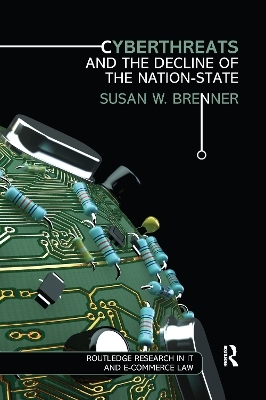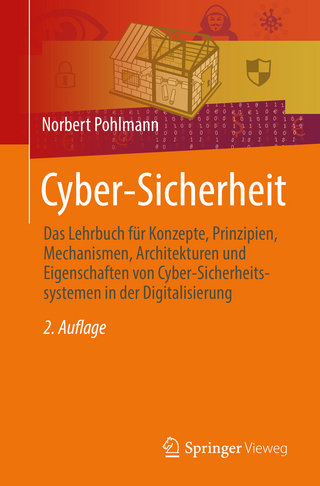
Cyberthreats and the Decline of the Nation-State
Seiten
2016
Routledge (Verlag)
978-1-138-20449-2 (ISBN)
Routledge (Verlag)
978-1-138-20449-2 (ISBN)
This book explores the extraordinary difficulties a nation-state’s law enforcement and military face in attempting to prevent cyber-attacks. In the wake of recent assaults including the denial of service attack on Estonia in 2007 and the widespread use of the Zeus Trojan Horse software, Susan W. Brenner explores how traditional categories and procedures inherent in law enforcement and military agencies can obstruct efforts to respond to cyberthreats. Brenner argues that the use of a territorially-based system of sovereignty to combat cyberthreats is ineffective, as cyberspace erodes the import of territory. This problem is compounded by the nature of cybercrime as a continually evolving phenomenon driven by rapid and complex technological change.
Following an evaluation of the efficacy of the nation-state, the book goes on to explore how individuals and corporations could be integrated into a more decentralized, distributed system of cyberthreat control. Looking at initiatives in Estonia and Sweden which have attempted to incorporate civilians into their cyber-response efforts, Brenner suggests that civilian involvement may mediate the rigid hierarchies that exist among formal agencies and increase the flexibility of any response. This book will be of great interest to students and researchers of information technological law and security studies.
Following an evaluation of the efficacy of the nation-state, the book goes on to explore how individuals and corporations could be integrated into a more decentralized, distributed system of cyberthreat control. Looking at initiatives in Estonia and Sweden which have attempted to incorporate civilians into their cyber-response efforts, Brenner suggests that civilian involvement may mediate the rigid hierarchies that exist among formal agencies and increase the flexibility of any response. This book will be of great interest to students and researchers of information technological law and security studies.
Susan W. Brenner is NCR Distinguished Professor of Law and Technology at the University of Dayton, USA. Professor Brenner chaired a Working Group in an American Bar Association project that developed the ITU Toolkit for Cybercrime Legislation for the United Nation's International Telecommunications Union. She is a senior principal for Global CyberRisk, LLC.
1. Cyberchaos: Law and Disorder in Cyberspace 2. Threat Morphing in Cyberspace 3. Threats and the Evolution of Threat Control Strategies 4. Cyberspace and Eroding Threat-Control 5. Proposed –and Possible–Solutions 6. Lessons from History 7. Distributed Security 8. Medieval Cyberspace?
| Erscheinungsdatum | 20.05.2018 |
|---|---|
| Reihe/Serie | Routledge Research in Information Technology and E-Commerce Law |
| Verlagsort | London |
| Sprache | englisch |
| Maße | 156 x 234 mm |
| Gewicht | 272 g |
| Themenwelt | Informatik ► Netzwerke ► Sicherheit / Firewall |
| Mathematik / Informatik ► Informatik ► Theorie / Studium | |
| Mathematik / Informatik ► Mathematik ► Angewandte Mathematik | |
| Naturwissenschaften ► Physik / Astronomie ► Astronomie / Astrophysik | |
| Recht / Steuern ► EU / Internationales Recht | |
| Recht / Steuern ► Privatrecht / Bürgerliches Recht ► IT-Recht | |
| Recht / Steuern ► Strafrecht ► Kriminologie | |
| Sozialwissenschaften ► Politik / Verwaltung | |
| ISBN-10 | 1-138-20449-8 / 1138204498 |
| ISBN-13 | 978-1-138-20449-2 / 9781138204492 |
| Zustand | Neuware |
| Haben Sie eine Frage zum Produkt? |
Mehr entdecken
aus dem Bereich
aus dem Bereich
Das Lehrbuch für Konzepte, Prinzipien, Mechanismen, Architekturen und …
Buch | Softcover (2022)
Springer Vieweg (Verlag)
34,99 €
Management der Informationssicherheit und Vorbereitung auf die …
Buch (2024)
Carl Hanser (Verlag)
69,99 €


